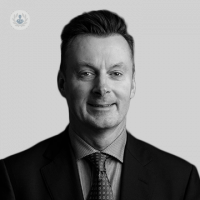What is a multidisciplinary team (MDT) and why do we need them?
Autore:Multidisciplinary teams (MDTs) are now best practice in some areas of medicine and surgery. Nowadays, a variety of conditions are treated by teams of doctors composed of several different specialists with expertise in different medical fields. Why are these teams necessary? Mr Nicholas Thomas, a leading London neurosurgeon and member of London Neurosurgery Partnership, explains all about MDTs and why they are so important to the medical world.

What are multidisciplinary teams?
Our world and our understanding of it is growing more and more complex every day. As more knowledge and information becomes available, it becomes ever more true that no one person can know everything about everything. This is equally true in the medical world – particularly in complex fields like neurosurgery – we are becoming increasingly sub-specialised, meaning that rather than having a broad knowledge of any one branch of medicine, we have mastery of one specific area.
This means we must work with other specialists who have mastered other fields to address all of our patients’ needs.
In the field of neuro-oncology, patients often need a variety of investigations, which may be radiological, pathological, or surgical in nature, and a combination of treatments, including surgery, chemotherapy, radiotherapy, and palliative care. Already we can see a number of specialists that patients will need to see:
- Neurosurgeon
- Oncologist
- Neuro-oncologist
- Neurologist
- Pathologist
- Radiologist
- Radiotherapist
- Palliative care specialist
And it doesn’t end there. Many patients will also need rehabilitation, and may require the attention of a physiotherapist or rehabilitation specialist. Depending on the exact nature of the patient’s illness, other specialists may also be needed.
Obviously, no one doctor can possess the vast amount of knowledge or necessary to give these patients the care they need. This is why we assemble teams of experts from different disciplines, who can, together, deliver the complete, holistic package of top-quality care to the patient. These are multidisciplinary teams (MDTs).
Example of a multidisciplinary team approach:
A good example of a multidisciplinary team would be a spine MDT. There are many things to consider when treating patients with spinal disorders, whether complex or simple. The best solution for one patient may be a non-operative treatment pathway to help them manage their symptoms, while the best solution for another patient may be surgery. Specialists that frequently feature in a spine MDT include, to name a few:
- Physiotherapist
- Pain specialist
- Spine surgeon or neurosurgeon
- Neurologist
- Radiologist
The group discusses the patient and their condition to decide on the best options. Will surgery provide a better outcome than non-operative management? What type of rehabilitation do they need?
Many spine MDTs also have access to a psychologist due to the fact that pain can affect a patient’s psychological wellbeing, and pain in the back and/or neck is typical of many spine conditions. Sometimes, this pain can become worse or can hinder recovery if the patient’s mental health has been affected, which is where the psychologist comes in – a good state of mind can optimise the recovery process.
The MDT places the patient’s needs and wellbeing at the centre of their care, meeting to ensure that they offer the patient the highest quality treatment pathway.


